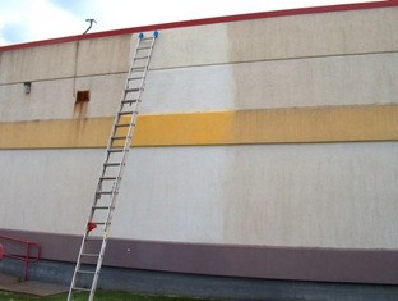Cleaning dryvit surfaces because dryvit is an insulation system the external coating is more susceptible to damage than traditional building materials.
Cleaning dryvit siding.
Dryvit damage to your dryvit or fiber cement siding can start small but if you have a large crack then it s a sign that damage and if you need any home repairs and improvements that is covered and you have a claim for it we are the contractors for you.
While the surface incorporates polymers that resist dirt the manufacturer suggests cleaning your walls at least once every five years.
The contractors install the dryvit siding over plywood osb substrate or existing siding.
To clean stucco start by mixing 1 2 cup of borax with 2 tablespoons of dish soap and 2 gallons of water.
Dryvit damage to your dryvit or fiber cement siding can start small but if you have a large crack then it s a sign that damage and if you need any home repairs and improvements that is covered and you have a claim for it we are the contractors for you.
Dryvit and fiber cement experts fiber cement vs.
Testing has verified that dryvit dpr finishes are most effectively and safely cleaned with the use of general cleaning compounds followed by a mildly pressurized water rinse.
Removing dirt airborne pollution mildew and algae testing has been verified that dryvit finishes can be adequately cleaned with the use of general cleaning compounds followed by a mild pressurized water clean and rinse.
Cladding material for proper cleaning instructions.
Acidic cleaners are not recommended for routine cleaning of dryvit finishes.
This can usually be accomplished with a garden hose and an ordinary nozzle.
Dryvit and fiber cement experts fiber cement vs.
Then apply the cleaning mixture using a single pump sprayer and let it sink in to the surface for 10 minutes.
No acidic cleaners are recommended.
Next saturate the wall with a pressure washer on a low setting so you don t damage the stucco.
Keep pressurized tip angles between 10 45 degrees depending on distance from the dryvit surface.
The cement must have a clean surface to successfully adhere to.
Use cold water only for cleaning and rinsing hot water will soften the acrylic finish.
10 degrees when 100 feet above the nozzle to 45 degrees 2 5 feet away.

